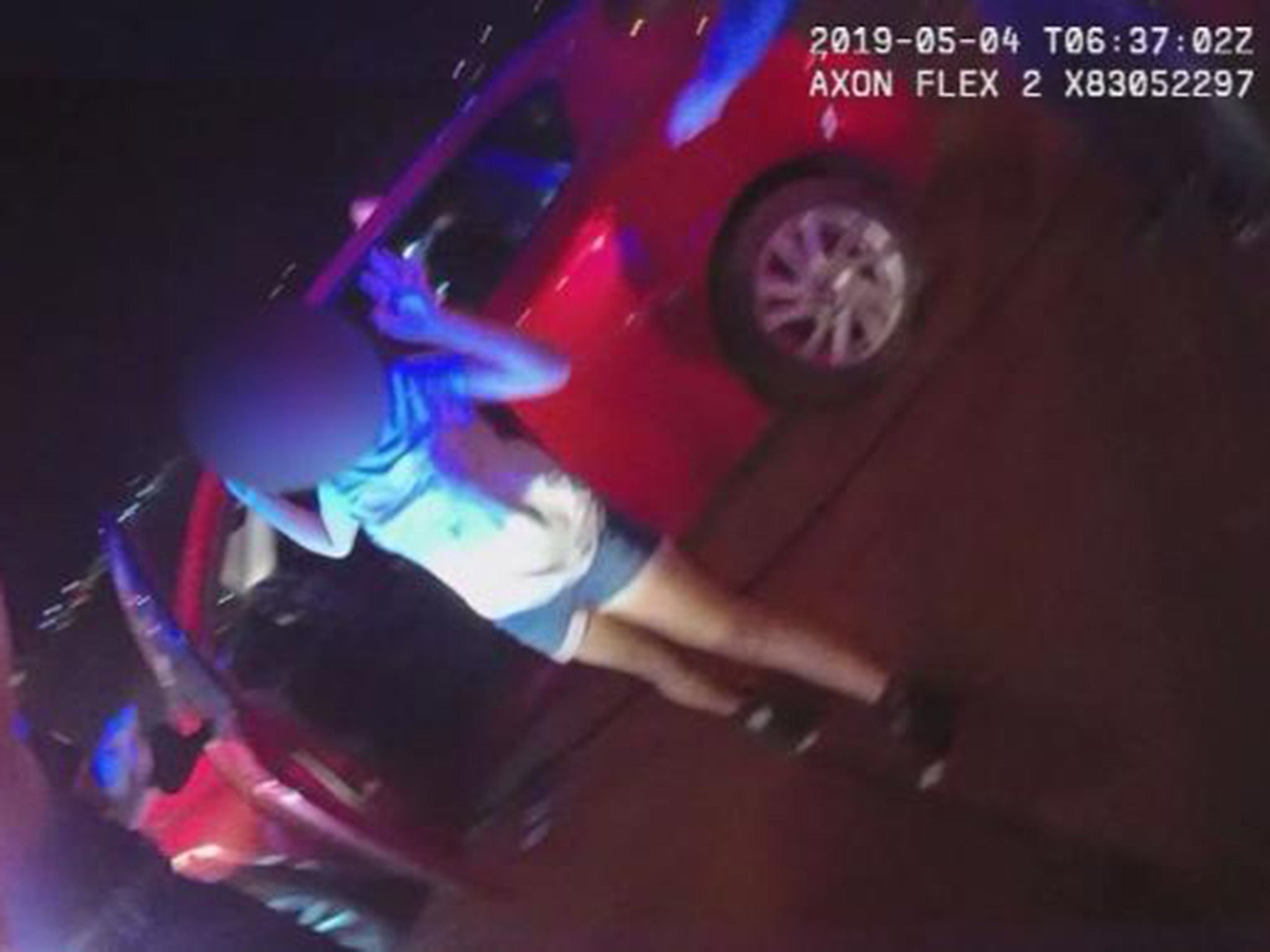From hairy Donald Trump socks to a motorcade crash and promise for a new I-10 bridge, there was a lot going on during the president's Louisiana visit.
Beet L. Jooz
Shared posts
4 takeaways from President Donald Trump's visit to Louisiana
President Donald Trump: I love Louisiana
President Donald Trump touted Louisiana as a symbol of America's energy independence during his visit to a natural gas plant near Lake Charles.
Popular games send unknown data to unknown entities, even if developers are reputable

A range of studies have shown that popular games are sending data to multiple third-party entities, and even the developers concerned may not know what data is being sent to whom.
Angry Birds, for example, knowingly sends advertising data to 43 entities, but developer Rovio turned out to be unaware of additional data sent through third-party SDKs …
The post Popular games send unknown data to unknown entities, even if developers are reputable appeared first on 9to5Mac.
Farmer saws off own leg with pocket knife and crawls for help after falling into piece of machinery
Drunk 12-year-old girl arrested for stealing grandfather's car after high-speed police chase
Boeing 'resisted pilot's calls for action' on 737 Max planes before Ethiopia Airlines crash
Biden Gets New York Times Headline For Not Saying Anything Stupid
Michigan Democrat Claims The Holocaust Was A Tragedy For…Palestinians
Britney Spears Now Part of 'Free Britney' Movement - TMZ
Britney Spears has joined the social media movement to free her from her conservatorship, and she told the judge as much Friday when she was in court.
View full coverage on Google NewsSupreme Court rules against APPLE in App Store antitrust...
Kavanaugh sides with liberals!
‘Too Good To Be True’: Trump Country Feels Jilted And Scammed By Learn To Code Campaign
'Fake News' Is a Really Dangerous Excuse for Censorship
You know what's not fake news? It's that politicians scream about the alleged dangers of "fake news" to justify efforts to censor speech that rubs them the wrong way. As Singapore's rulers join a growing list of their peers in America and around the world promising to punish "false statements of fact," it's important to remember that the supposed plague of misleading and harmful information on the internet is nothing new, nor is governments' desire to muzzle anybody who says inconvenient things.
Without a doubt, there's bullshit on the Internet. Some of it results from sloppy fact-checking, and some is deliberate publication of untrue information and propaganda. But this isn't a peculiar quality of online publishing—it's an inevitable product of any publishing platform.
People want to reach the public with their messages, and they use the tools available to them.
Politicians like that power when it's targeted at their enemies, but they resent it when they're on the receiving end.
We've Been Here (Long) Before
"There has been more new error propagated by the press in the last ten years than in an hundred years before 1798," President John Adams complained of his treatment by opposition newspapers at a time when news—fake or real—was printed by hand.
Adams's Federalist allies in Congress responded to the president's concerns about fake news with legal restrictions on "any false, scandalous and malicious writing or writings against the government." Unsurprisingly, the first person charged under the law was an opposition lawmaker—Rep. Matthew Lyon of Vermont—who accused President Adams of "an unbounded thirst for ridiculous pomp."
Ironically, the then-president's own cousin, Samuel Adams, had been an especially effective propagandist and publisher of arguably misleading information in the years leading up to the American Revolution. But that was the sort of fake news to which John Adams had no objection.
Censorship in Singapore
Striking a note that John Adams and company would have recognized, Singaporean newspaper The Straits Times suggests that speech controls are necessary because "an erosion of trust in governments and institutions has threatened the very foundations of democracy worldwide" and the "spread of fake news on new media have deepened this crisis."
Presenting the Protection from Online Falsehoods and Manipulation Bill for debate, Singapore's Home Affairs and Law Minister K. Shanmugam said it was "an attempt to deal with one part of the problem. The serious problems arising from falsehoods spread through new media. And to try and help support the infrastructure of fact and promote honest speech in public discourse."
Shanmugam's party has held power continuously since 1959, largely by suing into bankruptcy any opposition figures who dare to utter speech critical of the regime.
His position is unlikely to become less secure now that government ministers have the unilateral power, "to prevent the communications of false statements of fact in Singapore" by requiring people to change or recant what they've published under threat of fines and imprisonment. The law—passed May 8—is intended to apply to information published not just inside the country but also elsewhere, a response to the government's frustration with the international reach of the Internet.
That Singapore follows in the wake of Malaysia, another managed sort-of-democracy, is no surprise. That country last year banned the publication of "news, information, data and reports which is or are wholly or partly false" in a move transparently aimed at the opposition.
But traditional liberal democracies with supposedly firmer civil liberties protections also feel the allure of speech controls.
Information Fallacieuse and British Spies
Channeling his own internal John Adams, France's President Emmanuel Macron demanded government action against "propaganda articulated by thousands of social media accounts." He went on to sniff, "If we want to protect liberal democracies, we must be strong and have clear rules."
France's lawmakers obliged their president with a law allowing government officials to order the removal of online articles deemed to be false.
They then erupted in outrage when Twitter determined that the French government's own online efforts couldn't be brought into compliance with the law and so rejected a voter registration campaign.
Macron continues to pressure online platforms to eliminate information he doesn't like, meeting just days ago with Facebook's Mark Zuckerberg.
Britain's Prime Minister Theresa May also finds too much information published online to be inconvenient. She has accused Russia of "weaponizing information" and claims that Internet "companies have not done enough to protect users, especially children and young people, from harmful content."
Without bothering with legislation, the British government is creating a "fake news" rapid response unit that is tasked with monitoring social media and going after stories officials claim are false. The government also proposes to hold online publishers liable for "inciting violence and violent content, encouraging suicide, disinformation, cyber bullying and children accessing inappropriate material."
"The era of self-regulation for online companies is over," Digital Secretary Jeremy Wright bluntly claims. "Voluntary actions from industry to tackle online harms have not been applied consistently or gone far enough."
Censors plan, yet again, to suppress speech through involuntary means when people won't muzzle themselves? What a shock.
Not that modern American politicians are immune to such temptations…
Speech Suppression Efforts at Home
Luckily the First Amendment, for now, poses a barrier to Singapore/Malaysia/France/UK-style suppression of disapproved speech in the U.S. But modern American politicians are far from immune to such temptations.
President Donald Trump famously denounces every inconvenient news story and critical report as "fake news." His use of the term is so frequent that it was named word of the year for 2017 by the American Dialect Society.
Trump's Democratic opponents may not agree that Trump should occupy the White House, but they share his resentment that online speech is out of (their) control.
Sen. Dianne Feinstein (D-Calif.) frets that Russia uses social media "to sow conflict and discontent all over this country" and threatens government intervention. House Speaker Nancy Pelosi (D-Calif.) openly envies the UK's regulation of online media and says the U.S. should probably follow suit.
Last month, members of Congress from both parties alternately pushed extremism and political bias as reasons for government regulation of online speech.
Not that the rationale for regulating speech matters. The fakest news of all is the claim that politicians respect our liberty, including our free speech rights. Whatever excuse they raise, government officials will always find an excuse to try to suppress criticism and ideas they find uncomfortable. It's our right to speak out anyway.
Escaped bull runs loose on highway in Massachusetts
 A loose bull on a stretch of Massachusetts highway led state troopers on a brief chase Monday morning after escaping from a farm.
A loose bull on a stretch of Massachusetts highway led state troopers on a brief chase Monday morning after escaping from a farm.
Report: FBI Finds Child Remains, 'Obstacle Course' at Suspected Jihad Camp in Alabama
Cal Poly Faculty Votes to Ban Chick-fil-A from Campus
Florida Police Find 'Snarling Woman' with Seven Syringes in Her Vagina
Sri Lanka bans social media for 3rd time since suicide attacks
 The Sri Lanka government on Monday banned all social media platforms -- for the third time in less than a month -- to prevent the spread of false information during a time of religious tension, officials said.
The Sri Lanka government on Monday banned all social media platforms -- for the third time in less than a month -- to prevent the spread of false information during a time of religious tension, officials said.
Dog disease that can be passed to humans confirmed in Iowa - NBC News
Several cases of canine brucellosis have been confirmed at a commercial breeding facility for small dogs in Marion County.
View full coverage on Google NewsPolice investigating Baton Rouge rapper NBA Youngboy's ties to shootings around Miami
Air Force leaker charged with spilling drone secrets to reporter...
Air Force leaker charged with spilling drone secrets to reporter...
(Third column, 11th story, link)
Beto's Long History of Failing Upward...
Levin: Only Way to Make Dems Stop Using Soviet Tactics Against Republicans Is if Soviet Tactics Are Used Against Them
Mark Meadows: FBI 'Well Aware the Dossier Was a Lie' Before Moving to Spy on Trump Campaign
Chelsea Manning Freed From Federal Detention but May Have to Return Next Week: Reason Roundup
Chelsea Manning was allowed to leave the federal detention center in Virginia. She had been held there since early March in an attempt to compel her testimony to a grand jury about Manning's 2010 release of a huge cache of government documents to WikiLeaks.
"Today marked the expiration of the term of the grand jury, and so, after 62 days of confinement, Chelsea was released from the Alexandria Detention Center," Manning's lawyers said in a Thursday statement. But the whistleblower is still not in the clear:
Unfortunately, even prior to her release, Chelsea was served with another subpoena. This means she is expected to appear before a different grand jury, on Thursday, May 16, 2019, just one week from her release today.
"It is therefore conceivable that she will once again be held in contempt of court, and be returned to the custody of the Alexandria Detention Center, possibly as soon as next Thursday, May 16.
Chelsea will continue to refuse to answer questions, and will use every available legal defense to prove to District Judge Trenga that she has just cause for her refusal to give testimony.
On March 5, an Eastern District of Virginia judge denied Manning's initial motion to quash a subpoena compelling her to testify before a grand jury and give testimony. The next day, Manning appeared before the grand jury but refused to answer any questions.
"Yesterday, I appeared before a secret grand jury after being given immunity for my testimony," she said in a March 7 statement. "All of the substantive questions pertained to my disclosures of information to the public in 2010—answers I provided in extensive testimony, during my court-martial in 2013. I responded to each question with the following statement: 'I object to the question and refuse to answer on the grounds that the question is in violation of my First, Fourth, and Sixth Amendment, and other statutory rights.'"
Manning was found in civil contempt and, on March 8, taken to the Alexandria Detention Center. She was held in "administrative segregation," which her lawyers describe as "conditions that amount to prolonged solitary confinement."
QUICK HITS
Left: The Onion, 2015
Right: The New York Times, 2019 pic.twitter.com/R2Cw9EIOzv— mcc (@mcclure111) May 9, 2019
- New Age writer and Democratic presidential candidate Marianne Williamson has qualified for the primary debates on CNN.
- From the Fifth Circuit Court of Appeals via Techdirt, "a depressing tale about how cheap life is in jail, even for those who haven't been convicted of a crime."
- Donald Trump is painting Joe Biden as Hillary Clinton with a longer record of failure. Is he right?
- The abortion debate gets heated in the Alabama legislature:
TAKE A LOOK: Lawmakers were discussing this bill that would have banned nearly all abortions. The Senate removed an amendment that added exceptions in cases of rape and incest. Right after a quick voice vote to strip the amendment chaos broke out. pic.twitter.com/rygpucN0s2
— Alabama Politics (@AlabamaPolitics) May 9, 2019
Michigan Police Won't Be Able to Seize People's Cars for Suspected Drug Crimes Anymore
Michigan police have been using a tool called civil asset forfeiture to seize hundreds of cars a year over suspected marijuana offenses, even when the owner is not convicted of a crime. But those days will be coming to an end.
Michigan Gov. Gretchen Whitmer signed three bills into law Thursday that significantly limit police's ability to forfeit property without first obtaining a criminal conviction. Michigan will join 11 other states that have passed laws requiring convictions before forfeitures in some or all cases—part of growing bipartisan concerns that civil forfeiture deprives property owners of due process and creates perverse incentives for the police.
"I know that many of our citizen have not been treated fairly or offered the protections they deserve, and that changes today," Whitmer said at a press conference before signing the bills.
The bills will bar police from seizing property for suspected drug crimes without first obtaining a conviction in cases involving assets under $50,000. They will also strengthen procedural protections for property owners.
"Just a few years ago, Michigan had the worst-rated forfeiture laws in the country, and here we are today, joining the states with the best civil asset forfeiture protections," says Jarrett Skorup, director of marketing and communications for the pro-market Mackinac Center.
Law enforcement groups claim that asset forfeiture is a vital tool to disrupt drug trafficking and organized crime, but civil liberties groups and news investigations have revealed abuses of the practice around the country, often involving everyday citizens carrying petty amounts of cash.
Using public records, Skorup studied Michigan's use of asset forfeiture and found that police seized thousands of cars in 2017 under the auspices of marijuana enforcement. Of the more than 2,500 vehicles seized, 473 were not accompanied by a criminal conviction; in 438 of those cases, no one was even charged with a crime. In 10 cases, the cars were seized under suspicion of a drug violation even though the records say police didn't find any drugs.
The majority of those vehicle seizures occurred in Wayne County, which includes Detroit. Wayne County law enforcement has a particularly aggressive practice of surveilling medical marijuana dispensaries, pulling over drivers, and seizing their cars. County prosecutors then typically offer to settle such forfeiture cases and return the owner's car for a $900 payment.
As Reason has reported, that county's asset forfeiture program is now the subject of a federal civil rights lawsuit filed by a woman whose car was seized after Wayne County sheriff's deputies found $10 worth of marijuana in it. The suit claims the seizure and settlement fee were a violation of the Eighth Amendment's protections against excessive fines.
Overall, Michigan police used asset forfeiture to seize $13 million in cash and property in 2017—everything ranging from guns to TVs to Playstation 4s to grow lights for marijuana. Bowling balls, jumper cables, power tools, and Beats headphones also made the list.
More than half of all U.S. states have passed some form of civil asset forfeiture reform over the past decade. Three states have abolished civil forfeiture altogether. In Hawaii, a bill banning civil forfeiture is currently awaiting the governor's signature.
Some major cities, like Albuquerque and Philadelphia, have had to curtail their forfeiture programs due to lawsuits like the one against Wayne County.
There are some exceptions to the new Michigan laws. In addition to the $50,000 threshold, property can still be forfeited if it's unclaimed, the owner cannot be located, or the owner signs away the conviction requirement as part of deal with law enforcement.
Skorup says he worries that defendants may be pressured by law enforcement to sign away their property. Indeed, in 2018 Wyoming banned the use of roadside waivers following the case of Phil Parhamovich. Parhamovich was pulled over by a Wyoming state trooper while on his way to Wisconsin. Parhamovich said the trooper pressured him into signing away $92,000 in cash that was found in his van, money he said he planned to use to buy a recording studio. A judge eventually ordered the money to be returned.
"But overall, this is a monumental reform," Skorup says of Michigan's new laws. "These changes, combined with the fact that Michigan passed a ballot proposal legalizing small amounts of marijuana, should prevent most cases of people losing their property without being charged or convicted of any crime."










